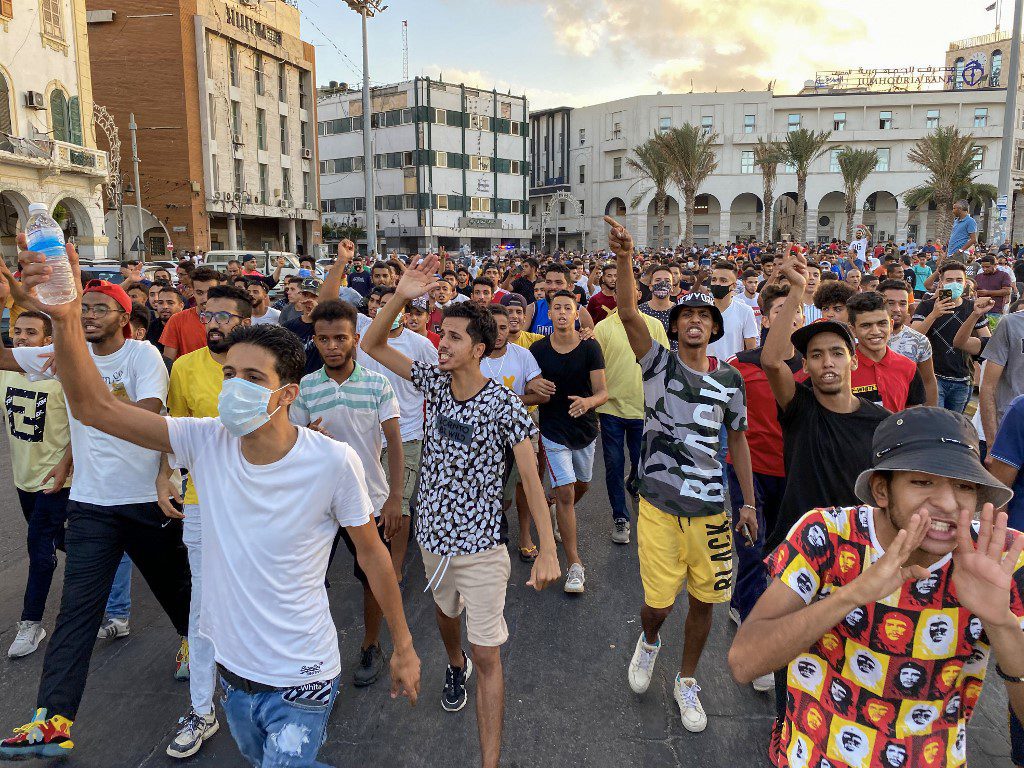
By: Mat Nashed
Libya’s rival administrations have agreed to appoint politicians to key posts in the next government based on regional representation and quotas. The consensus was reached in Bouznika, Morocco, just two weeks after both regions announced a surprise ceasefire on August 22, 2020.
The talks in Morocco brought together five delegates from the Tripoli-based Government of National Accord (GNA) and five others from the House of Representatives (HoR), based in the eastern city of Tobruk. Delegates from both political entities agreed to reconvene at the end of September to ‘guarantee the implementation and activation’ of the agreement.
The most contentious issues between the two sides have been over who will head Libya’s central bank, National Oil Corporation (NOC), and the armed forces. The first two entities are Libya’s only functioning institutions – responsible for generating and distributing the country’s wealth – while the last is essential to demobilize militias and criminal gangs that have ruled Libya since former dictator Muammar Gaddafi was toppled and slain in 2011.
Parallel U.N backed talks also took place in Montreux, Switzerland between September 7-9, 2020. The dialogue generated a list of recommendations to help unify the country. One consensus was that the Presidency Council of the GNA should be reduced from nine to three members. The HoR and Presidency Council should also cooperate to nominate individuals to positions of sovereign institutions. If implemented, these measures could end the political crisis and unify the country.
The rogue General Khalifa Haftar, who heads his self-styled Libyan Arab Armed Forces (LAAF), has undermined previous attempts to find a political solution, which explains why he was excluded from the talks in Morocco and Switzerland. After all, the rogue commander suffered a string of embarrassing defeats this year, hurting his leverage domestically and on the global stage. Most notably, Haftar’s failed bid to seize the capital of Tripoli prompted two of his foreign backers – the UAE and Egypt – to sideline him temporarily in favor of parliament speaker Aguila Saleh.
But as talks have progressed in foreign cities, grievances have continued to mount in Libya due to declining living standards and corruption. Extended blackouts, fuel shortages, and a banking crisis is largely the result of state embezzlement and an oil blockade that Haftar’s forces have imposed since January. These issues compelled many Libyans to demonstrate in Tripoli following the ceasefire. A GNA imposed lockdown to allegedly curb the spread of the coronavirus compounded the anger since it was largely perceived as a pretext to outlaw protests.
GNA-backed armed groups responded to the outrage by shooting and abducting protesters. The repression in Tripoli prompted Serraj to suspend Interior Minister Fathi Bashagha. An influential figure from the port city of Misrata, Bashagha was restored to his post on September 4, 2020. Days after, Serraj announced in a pre-recorded television speech that he would be resigning at the end of October to make way for a new power-sharing government.
Commenting on the news, Turkey’s President Recep Tayyip Erdogan, who intervened in the military to safeguard the GNA from Haftar’s forces earlier this year, expressed concern about the GNA’s future. A Turkish official also told Reuters that Ankara would prefer to see Serraj keep his post.
“If Sarraj does not remain in office, there are some names who are involved in the processes and can take the GNA forward. These are, of course, Libya’s own issues, but Turkey may provide some support,” he added.
Libyan expert Emad Badi, who is a Senior Fellow at the Atlantic Council, told Bloomberg that Serraj’s announcement “opens up the Government of National Accord internally for rivalries as to who will take over and who will represent western Libya in the Geneva talks.”
Meanwhile, Haftar has tried to retain some leverage in the east amid protests over declining living standards in Benghazi. He claimed during the protests that he wouldn’t allow Islamists or members of the Muslim Brotherhood – a label he frequently uses to slander his rivals – to hijack people’s grievances. The unrest was directed mostly at politicians, prompting the Prime Minister of the eastern-based government, Abdullah Thinni, to submit his resignation to the HoR on September 14, 2020.
Days later, Haftar’s son reached an accord with Deputy Prime Minister of the GNA Ahmed Maiteeq in Sochi, Russia. The two parties agreed to resume oil exports for one month. The agreement was perceived as a major compromise by Haftar’s camp. But for supporters of the GNA, many wondered what the agreement accomplishes besides paying the salaries of Haftar’s forces and giving the general renewed relevance.
More troubling was that the agreement bypassed Serraj, who is often at odds with Maiteeq. As expected, Serraj didn’t endorse the agreement. Eyewitnesses also said that the relatives of GNA rebels forced Maiteeq to cancel a press conference in his home city of Misrata.
The NOC, for its part, said that it wouldn’t support any deal unless Haftar withdrew his forces from oil fields. At first, neither Haftar nor Maiteeq made any reference to the NOC’s demands. They merely stated that the distribution of oil wealth would be overseen by an independent committee, which would consult between the rival administrations in order to pay salaries and address the mounting public debt.
Despite the NOC’s initial objection, it announced on September 18 that only secured oil facilities would resume operations. It added a statement on its Facebook page Saturday stating that a force majeure continues in oil fields where Haftar’s forces – including mercenaries belonging to the private Russian security company Wagner – are present.
The oil blockade has cost Libya about $9 billion in lost revenue this year alone, prompting the U.N Mission in Libya to express the ‘urgent need to lift the oil blockade” and return to an “inclusive political process.” But in Libya, bringing all players to the same table is easier said than done.


